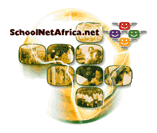Engendering ICTs
Developing Women: How Technology can Help
The paper addresses the question of whether women have lower earnings because of intrinsic feminine attributes or because of features of their environment. In a model of household resource allocation and the labor market we show that equilibria satisfy static efficiency but are dynamically inefficient. A small difference in technology of production of the household good, or in preference for it, magnifies relative costs of external work for women. [990]
How_Technology_can_Help.pdf
Gender and the Information Revolution in Africa
The essays in this book examine the current and potential impact of the ICT explosion in Africa. They focus specifically on gender issues and analyze the extent to which women's needs and preferences are being served. The authors underscore the need for information to be made directly relevant to the needs of rural women, whether in the areas of agriculture, health, microenterprise, or education. They argue that it is not enough for women simply to be passive participants in the development of ICTs in Africa. Women must also be decision-makers and actors in the process of using the new ICTs to accelerate African economic, social, and political development. [851]
http://www.idrc.ca/acb/showdetl.cfm?&DID=6&Product_ID=471&
CATID=15#toc
Gender Equality and the Millennium Development Goals
The focus is on the poverty, education, health and nutrition, and the environment goals. For example, gender inequality constrains economic growth and exacerbates poverty therefore increasing women's "productivity" and "empowerment" helps to achieve goal one "Eradicate extreme poverty and hunger". Because all MDGs are so interconnected, progress on one will also assist progress on others. The booklet also points to the Poverty Reduction Strategy Paper (PRSP) process as a good forum for tailoring the MDGs to local contexts and integrating gender into national strategies. [826]
Gender_Equality_and_the_Millennium_Development_Goals.pdf
Telecenters and the Gender Dimension: an Examination of How Engendered Telecenters are Diffused in Africa
Telecenters have become an important component to development programs that seek to narrow the digital and knowledge divides that exist throughout the world. Despite the proliferation of telecenters throughout Africa, women continue to be cut off from essential info-communication resources that could improve their lives. This thesis examines the relationship between gender differences, telecenter design and women's accessibility to information and communication technologies (ICTs). By examining how these elements interact in the context of the diffusion model, this thesis suggests that the incorporation of the gender dimension into telecenter designs can enhance the diffusion of engendered telecenters, thereby increasing women's access to ICTs and improving their ability to contribute to the evolution of Africa"s information society [823]
KelbyJohnson.pdf
Identifying barriers to ICTs in education
COL and its network are continuing work in addressing gender barriers, such as those encountered by women, to the use of information and communications technologies (ICTs) for education and training, and especially for open and distance learning. [655]
http://www.col.org/wdd/barriersict01.htm#
Final Synthesis Paper on Gender and ICTs
Thia paper addresses the power of ICTs, and their use as as an empowerment tool for women. [654]
Synthesis_Paper_01.pdf
Declaration of the Know How Conference 2002
Our approach to gender and ICT work involves an understanding of power relations in society. This recognition includes an awareness of the unequal power relations between women and men, North and South, rich and poor, urban and rural, connected and unconnected-in local communities, in sovereign countries, and globally. [653]
http://www.isiswomen.org/onsite/knowhow/kampaladeclaration.htm
ICTs their impact on and use as an instrument for the advancement and empowerment of women
Uganda, like many countries has men as the dominant players in decision making, although women shoulder most reproductive, productive and community management responsibilities, many of which are not remunerated or reflected in national statistics. The lower status of women, in comparison to men is due to gender imbalances that arise from the unequal opportunities and access to and control over productive resources and benefits. [652]
http://www.un.org/womenwatch/daw/egm/ict2002/reports/Paper-RMijumbi.PDF
ICT and Gender
Men and women have different needs and constraints to accessing and using Information and Communication Technology (ICT). [651]
ictgender_01.pdf
Engendering Management and Regulation of ICTs
Why don't women have access to ICTs? [650]
Engendering_management_and_regulations.pdf
ICT and Gender equality
Women and men have different needs andconstraints when accessing and using Information and Communication Technologies (ICT). In many societies, women’s and men’s access to and use of technology are rooted in behavioral, cultural, and religious traditions. [649]
ICT_and_Gender_equality.pdf
Telecenters and the gender dimension
an examination of how engendered telecenters are diffused in Africa
Despite the proliferation of telecenters throughout Africa, women continue to be cut off from essential info-communication resources that could improve their lives. This thesis examines the relationship between gender differences, telecenter design and women’s accessibility to information and communication technologies (ICTs). [648]
telecenters_and_digital_divide.pdf


